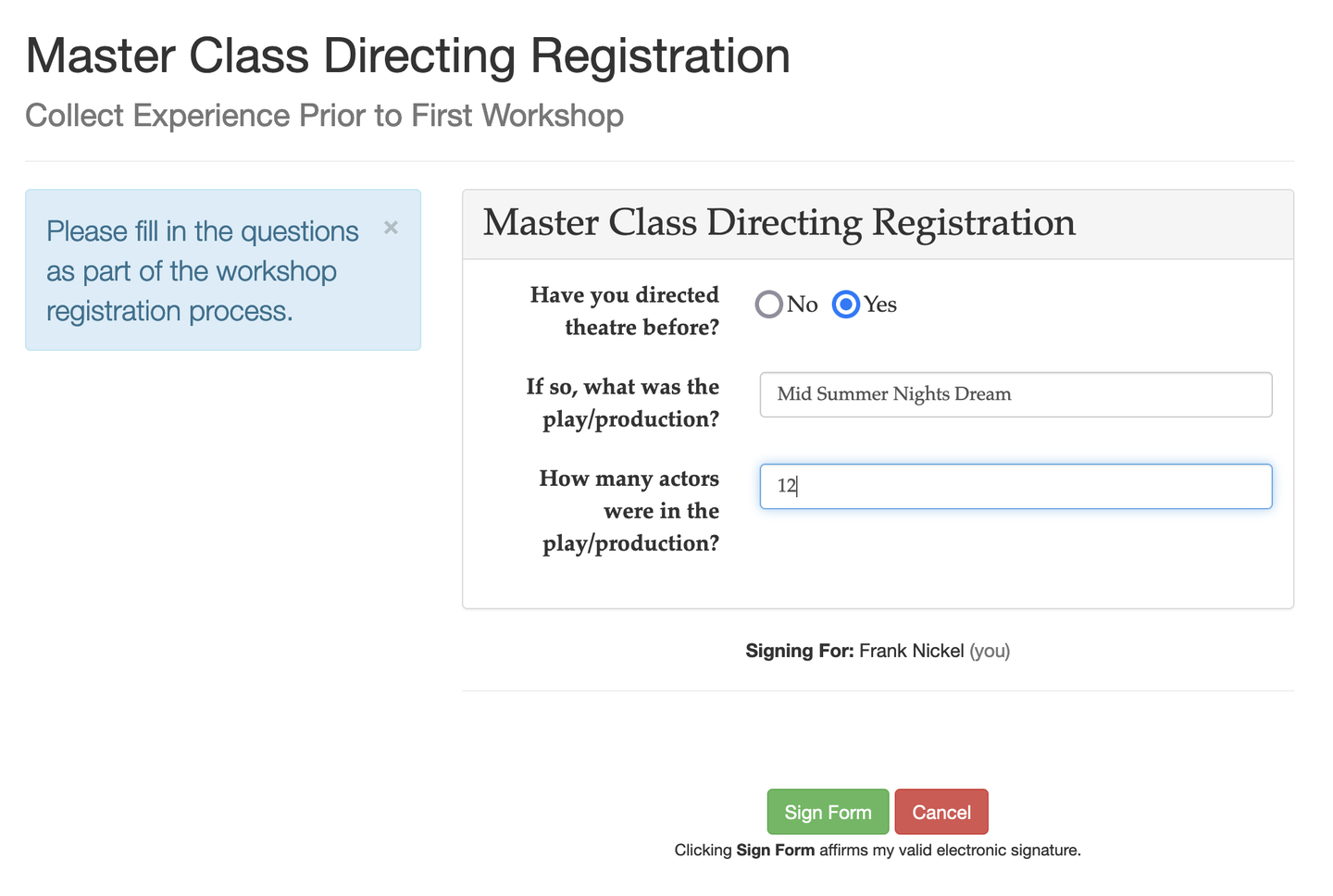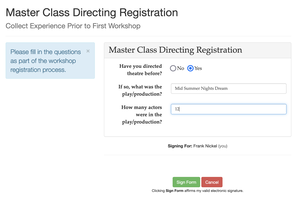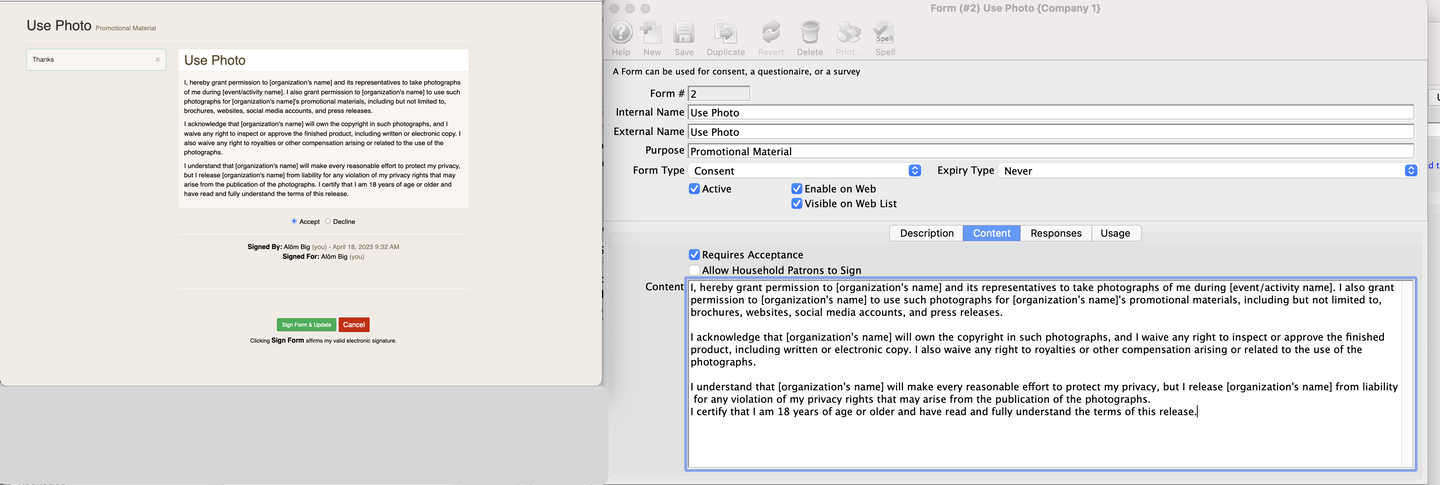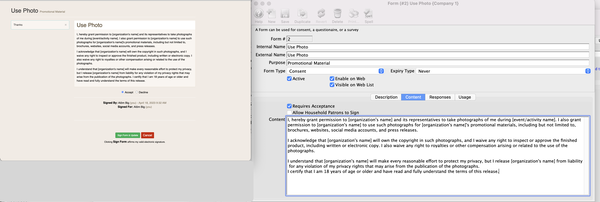

The Forms Feature in Theatre Manager is a digital interface used to collect information or data from individuals (Patron). Forms can be used in a wide range of contexts, such as surveys, questionnaires, parental consent and many others.
Forms in Theatre Manager typically consist of fields or sections where users are prompted to input specific information. These fields may be pre-defined or customizable, depending on the specific use case. Forms may also include instructions or guidelines for users to follow when filling out the form.
Form Types in TM Top
Theatre Manager currently has 2 types of forms, below are examples of what you will see in the program and what patrons will see online.
Consent Form
A consent form is a document to obtain an individual's informed consent before participating in a particular activity or procedure. It is typically used in medical, research, and legal contexts to ensure that individuals are fully aware of the potential risks and benefits of a particular activity and have given their voluntary and informed consent to participate.
The consent form usually contains information about the purpose and nature of the activity or procedure, the risks and benefits involved, and any alternatives that may be available. It also typically includes a statement that the individual is free to withdraw their consent at any time without penalty.


Questionnaire Forms
A questionnaire is a type of survey designed to collect data and information from individuals or groups of people. It is a structured set of questions that are presented in a written format, often with a range of possible responses to choose from. The questions may be open-ended, requiring a written answer, or closed-ended, providing respondents with a list of predefined options to choose from.
Questionnaire forms are commonly used in research, marketing, and social science studies to collect quantitative and qualitative data from a large number of participants. They can be used to gather information on a wide range of topics, such as attitudes, opinions, behaviours, and demographics.
However, they require careful design and piloting to ensure that the questions are clear, unbiased, and appropriate for the intended audience.


Click here to learn how to create a form.